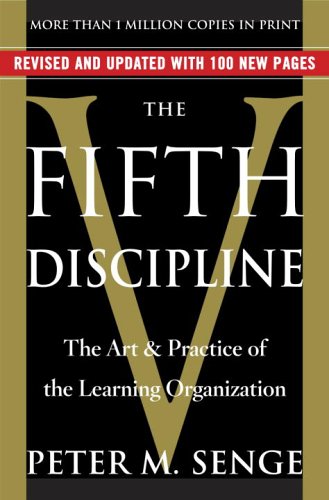I am about to finish “The Fifth Discipline” by Peter M. Senge and I have to admit that this is the best management book I have read so far. It is in fact so good, that if I had to give just one book to every manager in any organisation, this would be my choice. It is missing all the theories behind the “five forces”, “chi-square”, “balanced scorecard” and other smarty stuff, it does not even have accounting principles or any “four ways” or “ten tips”. Instead it presents basic ideas as per how to really lead the organisation you work for, how to solve problems it encounters and how to learn on the way. Leading idea of this book is a systemic view of organisation and generally life as we know it, supported by the organic view on all enterprises.
He confirms what we already know – that putting down the fires serves nothing else except supporting our egos, or egos of our executives, who by solving every day problems can then demonstrate how useful for organisations they are. This “fireman” approach does present short-term results which only reinforce similar behaviour. But in the long run the underlying issues are not being solved, because that would require longer term thinking, systematic analysis and maybe even admission that the source of the problem lie in part in us.
The second idea goes hand in hand with the first – as with any living organism, many functions do not require control or conscious thinking about performing certain basic tasks. Too much control (or concentration of thought) in one area leaves the other areas open. Let the brain set the course, legs will know how to walk there and ands will know how to balance that walk. Extrapolate this onto organisations and you should let the HQ set the course, but at the same time allow your units to be self responsible and independent in getting there.
Lastly, what really is important, is the fact that we do operate through mind-sets of which we are not even aware of. Discovering them through proper dialogue may give you an enlightening experience. Have enough courage to open yourself up and give an example to others, who knows where this will take you.
All in all, a collection of great ideas. But as with any ideas, all of them will remain subjects to talk about if no one will use them. Here though it really is worthwhile to explore them and stay committed. Peter M. Senge’s fifth discipline may as well be the only one you really need.

